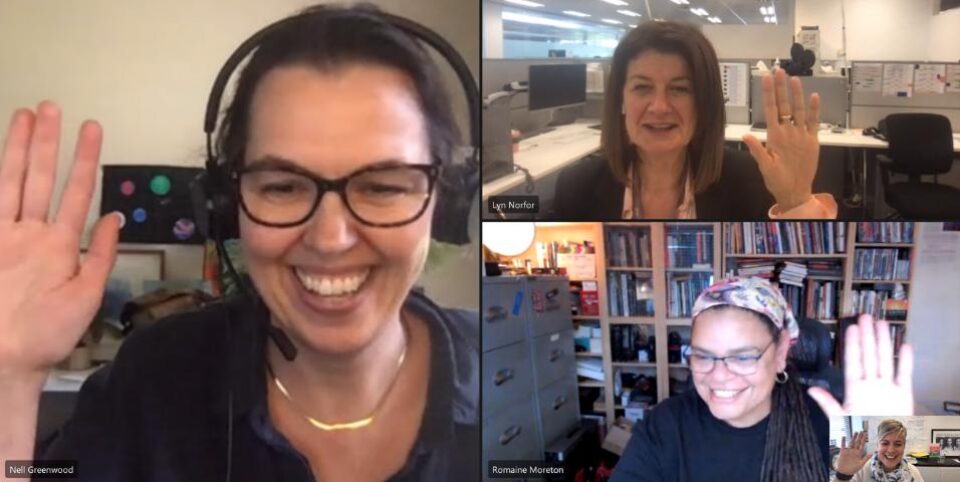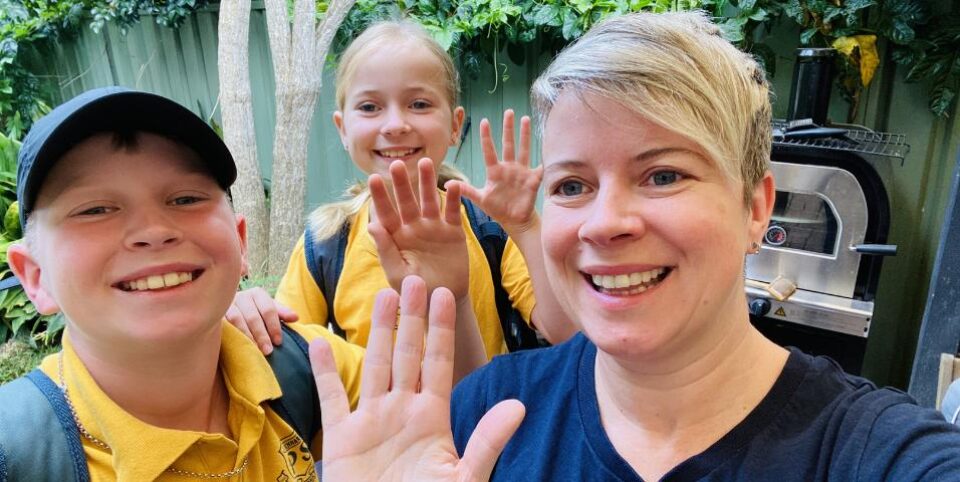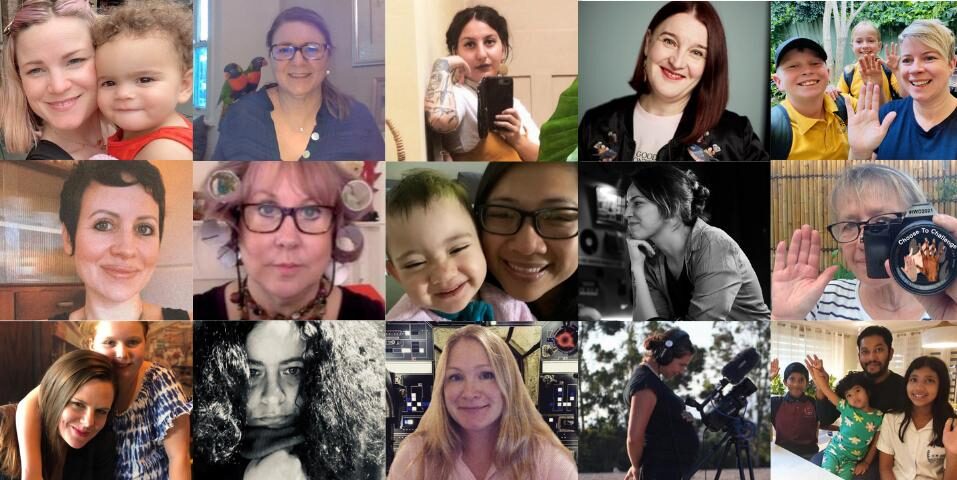The focus on the representation and support of women in the workplace is something on which AFTRS prides itself. As we celebrate International Women’s Day 2021, Director of People and Culture, Louise Hope, breaks down the numbers and spotlights the individuals who make AFTRS such a rich place to work.
——-
‘Choose to Challenge’ is the theme for International Women’s Day this year. For us, it’s a great opportunity to reflect on the progress made towards equality and identify what still remains to be done. As we prepare the next generation of screen and broadcast content creators to enter the industry, we celebrate and acknowledge the amazing contributions of pioneering women who have worked so hard to challenge the status quo and forge a career path in a male-dominated industry.
We are incredibly proud that 54% of our total workforce, 50% of our Executive team and 47% of our senior leaders identify as female. But numbers aside, we are even more proud of our team and what they have achieved personally and professionally.
Led by CEO, Dr Nell Greenwood, an accomplished writer, director and producer with extensive production experience in Europe and Australia, the senior leadership team at AFTRS is serious about supporting and empowering women in the screen and broadcast industry. I spoke to a few of our staff across the organisation to get their thoughts on this year’s IWD theme.

Dr Alejandra Canales is an award-winning documentary filmmaker with an extensive career in directing, producing, curating and programming, and teaching and curriculum development. With her PhD in creative arts, Alejandra says, “I #choosetochallenge by constantly and actively engaging even when that can lead to discomfort.”
Essi Haukkamaa-Judge is a Finnish born film and TV producer, with more than 20 years’ experience working in various production roles in Finland and Australia. Currently working towards a PhD in film studies, Essi teaches in the Bachelor of Arts Screen: Production course. “I think our work as teachers is a constant work in challenging inequality, while we teach our students about inclusivity behind and in front of the camera. We have especially started to talk about inclusivity and diversity behind the camera and within the crew people work with.”
Maree McMahon works in the Governance team and has recently enrolled in her MBA. “By striving to be conscious in my actions and interactions, and to be courageous in having the discussions to call out gender bias and inequality, no matter how hard the circumstance, I hope to contribute to the collective sea of change.”
Cody Jarrett is a screenwriter, producer, and director. Her role at AFTRS is Senior Lecturer – Producing in the Bachelor of Arts Screen: Production program. Cody has drawn on her practical experience to inform her teaching practice at both QUT and AFTRS.
“I choose to challenge groupthink, confirmation bias and selective perception – whoever that comes from.”
Julia Avenell has been with AFTRS since 2003. Starting out as an administrative coordinator, we have been delighted to watch Julia successfully complete postgraduate qualifications in eLearning and Julia now works in the Teaching and Learning team as a learning designer.
“For International Women’s Day, I will #advocate!”
AFTRS alumna Elise Cociuban is a screen music composer, who works to support the delivery of the Bachelor of Arts Screen: Production.
“I choose to challenge the way the world perceives our strengths and value.”
Jane Newton works in the Teaching and Learning team to support faculty in their delivery of our award courses. Working closely with faculty and students, Jane chooses to challenge “outdated notions that girls can’t do what boys do. I seek to empower women and girls to thrive in traditionally male-dominated professions by promoting self-confidence and capability, and by questioning the structures and traditions that allow inequality to continue.”
Over the last 18 months, we have been working hard to fight inequality by rolling out flexible working arrangements to ensure that harmful gendered stereotypes are not reinforced and to support the wellbeing of our team. Studies have shown that giving mothers access to flexible working arrangements significantly decreases the likelihood that they will drop out of employment following the birth of their child.
Events Manager, Alicia Emery, took time off for the birth of her first child. Alicia returned to work four days per week and works flexibly from home. This allows Alicia and her partner to share the care of their daughter throughout the week. However, it’s not just working mothers who take advantage of flexible working to care for their family. Late last year, A/g Head of Business Applications and Infrastructure, Shisheer Kishore, and his wife welcomed their fourth child, and Shish now works flexibly between our office in Moore Park and his home in Sydney’s south-west. The dramatic reduction in his commuting time means he can take his older kids to sport and take on a greater role in the home.
Industry Manager (Students), Dejay Vi Nguyen, also took time off to welcome her daughter into the world. Dejay now job-shares her role in managing internships for our students. Working closely with our cohort, Dejay wants to “be more conscious of unconscious bias by being aware of gender and diversity balance when opportunities are being offered.”
Head of Marketing and Student Recruitment, Louise O’Sullivan, chooses to challenge her daughter “to believe in herself and know that she can do anything, not despite being a young woman, but because she is.”
Admin Coordinator for the Master of Arts Screen programs, Valerie Etienne, believes her “challenge is to continue to advocate for real diversity, inclusion and equal opportunities in everything I do, in particular in the education and arts sectors, where the stories, ideas and needs of marginalised and disadvantaged people, minority groups, as well as women’s stories and voices from all walks of life, need to be listened to and valued so we can truly collaborate and challenge the power structures and restrictive frameworks of our highly institutionalised and hierarchical living with a genuine lens that reveals the beauty and richness of what makes us all equally different.”
Jess Gillan is a writer/director working to support the Master of Arts Screen courses and is in her final year of the Master of Arts Screen: Business.
“I choose to challenge by being authentic, using my voice and taking up space. I evolve, even when it’s painful #lobster.”
AFTRS for Business Account Coordinator, Emmanuelle Rose, chooses to challenge “through my commitment to seeking guidance and resources to unpack societal gender roles and expectations and sharing my experiences with others.”

And, after much reflection, I #choosetochallenge by ensuring that both of my kids see no limits to what women can do or where women belong. I choose to challenge gendered stereotypes, including stereotypes of how leaders “should be”, and work to increase the number of female leaders both at AFTRS and in our industry by promoting the achievements of my amazing female colleagues.
——-
Follow us on LinkedIn to learn more about the AFTRS culture, announcements and career opportunities.
